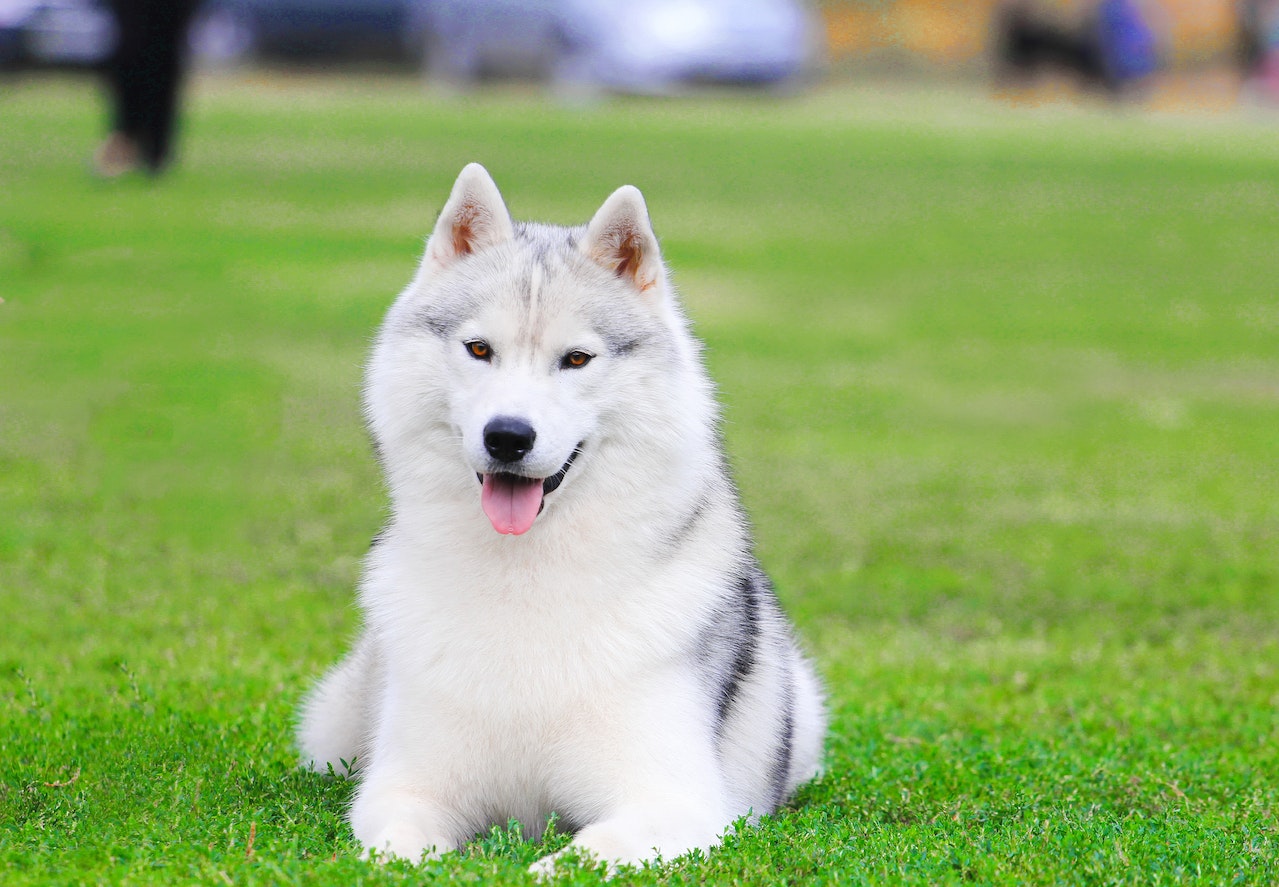If you’re worried and wondering why is your husky so fat, carry on reading as we walk you through all the possible causes that have brought about this weight gain.
We’ve also got some advice on how to help your husky shift those extra kilos and bring them back to their ideal weight range.
Sometimes it’s hard to determine the weight of a husky, with their big, fluffy coats making them seem a lot larger than they actually are.
Weighing at home isn’t an easy option either, however, a quick trip to the veterinarian’s office and a step with all four paws onto the scales can soon give you an accurate reading of exactly how much your husky weighs.
On average a male husky should weigh between 10-14kg and a female should weigh between 8-11kg.
So, if it transpires that your husky too fat, more than they ought to be, the first thing you need to do is pinpoint what it is that’s caused them to gain a little more weight in the first place.
From eating an incorrect diet to a lack of exercise, there are several factors that could have lead to your husky’s number creeping up on the scales.
Why Is My Husky So Fat?
Let’s look at the main possible and most common reasons for why is your Husky so fat:
Diet
The food that your husky is consuming daily could be the reason that they’ve started to fill out a bit more.
An incorrect diet is the most notorious cause of weight gain in dogs, and many husky owners forget that little treats and snacks throughout the day need to be accounted for alongside their usual meals.
Family and friends can also be an issue here and might be feeding your dog little treats on the side without you realizing it.
Although completely understandable (who can so no to a big pair of puppy-dog eyes after all?), this is another thing to keep a close eye on when you’ve got visitors.
It’s not just the wrong foods that need to be considered though, as too many of the right foods can lead to accidental weight gain.
This is because it’s also easy to forget to account for the number of calories your dog is eating too.
For example, even if you’re feeding them a big bowl of grilled chicken breast and steamed vegetables for each meal, most probably you’re the one making your Husky too fat.
The amount that they are eating needs to be in line with their recommended calorie intake.
And so, what might initially seem like a super healthy meal can actually be leading to weight gain.
The average husky should only be consuming between 850 and 1300 calories per day to maintain a healthy weight range.
This is fairly easy to figure out just by looking at the nutritional information on your husky’s dog food packet.
And there are even some brands of dog food that will create a tailor-made plan for your dog’s individual needs, taking all of the hard work out of it for you.
Exercise
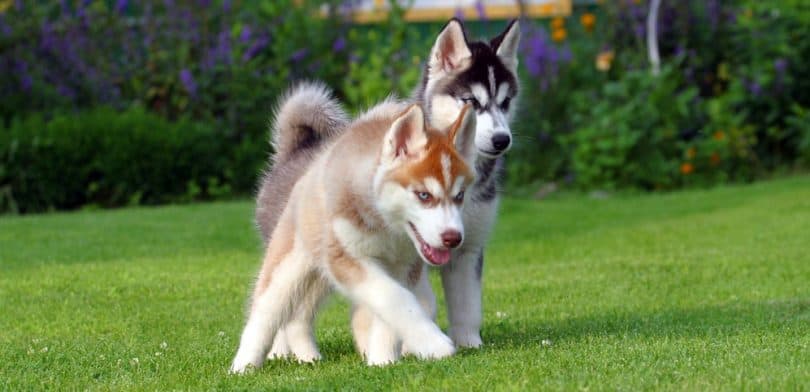
If you’re certain that you’ve got your husky’s diet in check, the next potential reason that they’ve gained a little weight might be because they aren’t getting enough exercise.
Huskies are a breed of dog that needs to be kept active throughout the day.
They were initially bred for running across great distances after all, so it’s in their genes to want to get outdoors and run around.
A husky needs at least one hour of walking or running each day to help keep them in an ideal weight range.
Regular exercise won’t only help to shed some of those excess kilos either, it will also help with keeping your husky’s joints healthy and prevent diseases such as arthritis from setting in as they get older.
It doesn’t just need to be a case of walking or playing fetch with your husky though. There are loads of ways you can keep them active and help keep excess weight off.
Agility training, jogging with your dog, and even taking them for a swim are all fantastic ways to keep them active as well as mentally engaged.
It can be a struggle for a working person to find the time to take their husky out for a couple of long walks throughout the day, though.
In this case, why not take a look online to see if there are any dog walkers in your local area that can do it for you whilst you’re at work?
Dog daycare is another fantastic way to keep your husky active and entertained throughout the day, and this can also help them to develop social skills as they’ll be playing with other dogs.
Injury And Illness
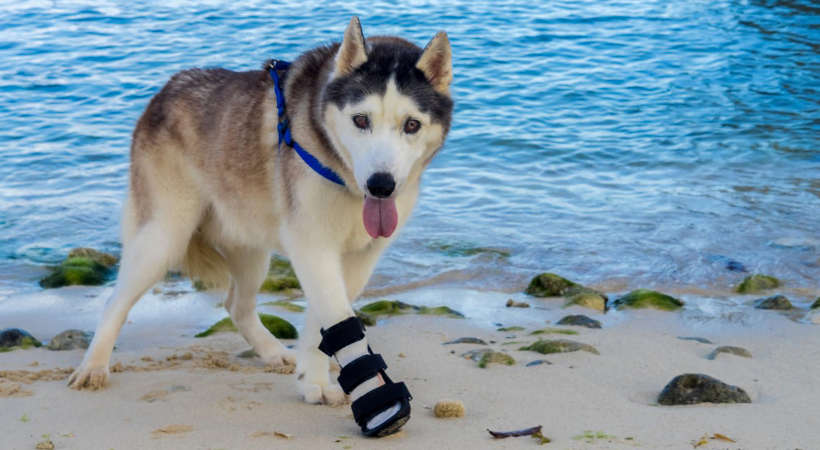
There might come a time during your husky’s life where they end up getting accidentally injured during a walk or a particularly boisterous playtime.
They may also need to have a couple of weeks recovery period following an operation, such as spaying or neutering.
During this time, it’s really easy for a husky to put on weight as they’ll be burning much less energy than they usually would.
This might be the reasons why your Husky is so fat… at the moment.
A veterinarian will usually recommend that your husky is only taken on short leash walks during this time.
Therefore the diet your husky is eating will need to be more closely monitored to make sure there isn’t any extra weight gain.
Another sign of your husky putting on weight could be that they are suffering from an illness, especially if they’ve had a rapid weight gain that has seemingly come from no particular change of diet or exercise routine.
If you’re concerned about this, be sure to take your dog to a veterinarian as soon as possible.
Age
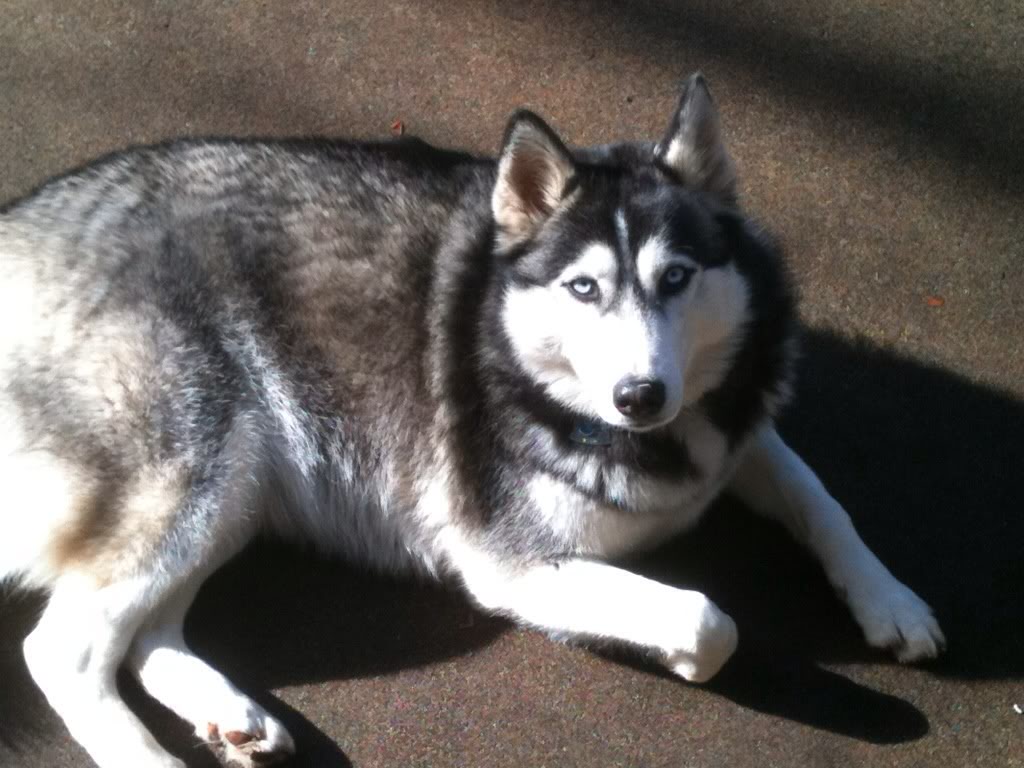
Consider the age of your husky as well as you try to pinpoint what’s caused them to gain some extra weight.
As your husky begins to age they will become less active than they were in their youth, and long walks or games of fetch will be far less appealing.
Calorie control is the best way to keep your husky within their ideal weight range if you’ve got a senior dog that isn’t too keen on heading outdoors for as long as they used to.
There are also dog foods that are specifically designed for senior dogs to help control weight gain, and keep their joints healthy at the same time.
Exercising your husky is still important, though. Try breaking their previous hour-long walks into smaller chunks of around 20 minutes at a time instead.
A senior dog will find this much more manageable and you’ll still be able to give them a similar amount of exercise that they’ve been used to without tiring them out or potentially causing any strain or injury on older joints.
Genetics
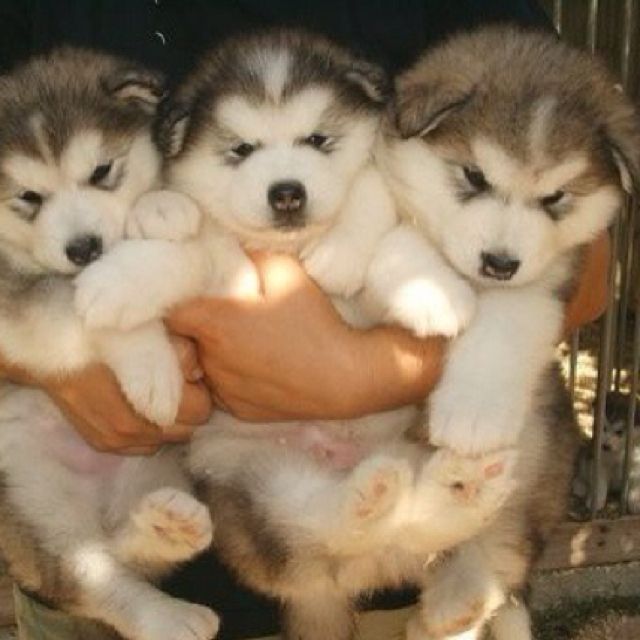
You’ve checked your husky’s diet and you’re certain that they are getting enough exercise throughout the day.
You’ve also gone through every other possible cause but you’re still perplexed as to why your dog has put so much weight on.
Well, it’s time to consider that they could just be genetically large. Dogs that have got larger parents or siblings are more likely to seem bigger themselves.
This is particularly true if you’ve checked all other factors with your veterinarian and there is no apparent reason as to why your husky is outside of their ideal weight range.
Remember extra weight doesn’t always equate to fat either. The numbers of the scale may be higher than they ought to be, but that could also be down to muscle mass.
In fact, muscle weighs more than fat, so what might seem like a fat gain could actually be the extra muscle that your dog has gained.
If you’ve had your husky from a puppy as well, give some thought to whether it’s always been a little on the heavy side.
Your vet will have records of your dog’s weight from each checkup, so if you notice that they’ve always packed a few more pounds or been on the higher end of their weight range then genetics could be the reason.
Final Word
Determining the cause behind your husky’s weight gain will give you the best opportunity to pinpoint what changes need to be made in order to bring them back to the ideal range for their size and gender.
Don’t wait until the figures are there and action needs to be taken though.
Getting ahead of the game and making sure your husky has the correct diet and is getting enough exercise will ensure you’ve got a healthy and happy dog for years to come.

